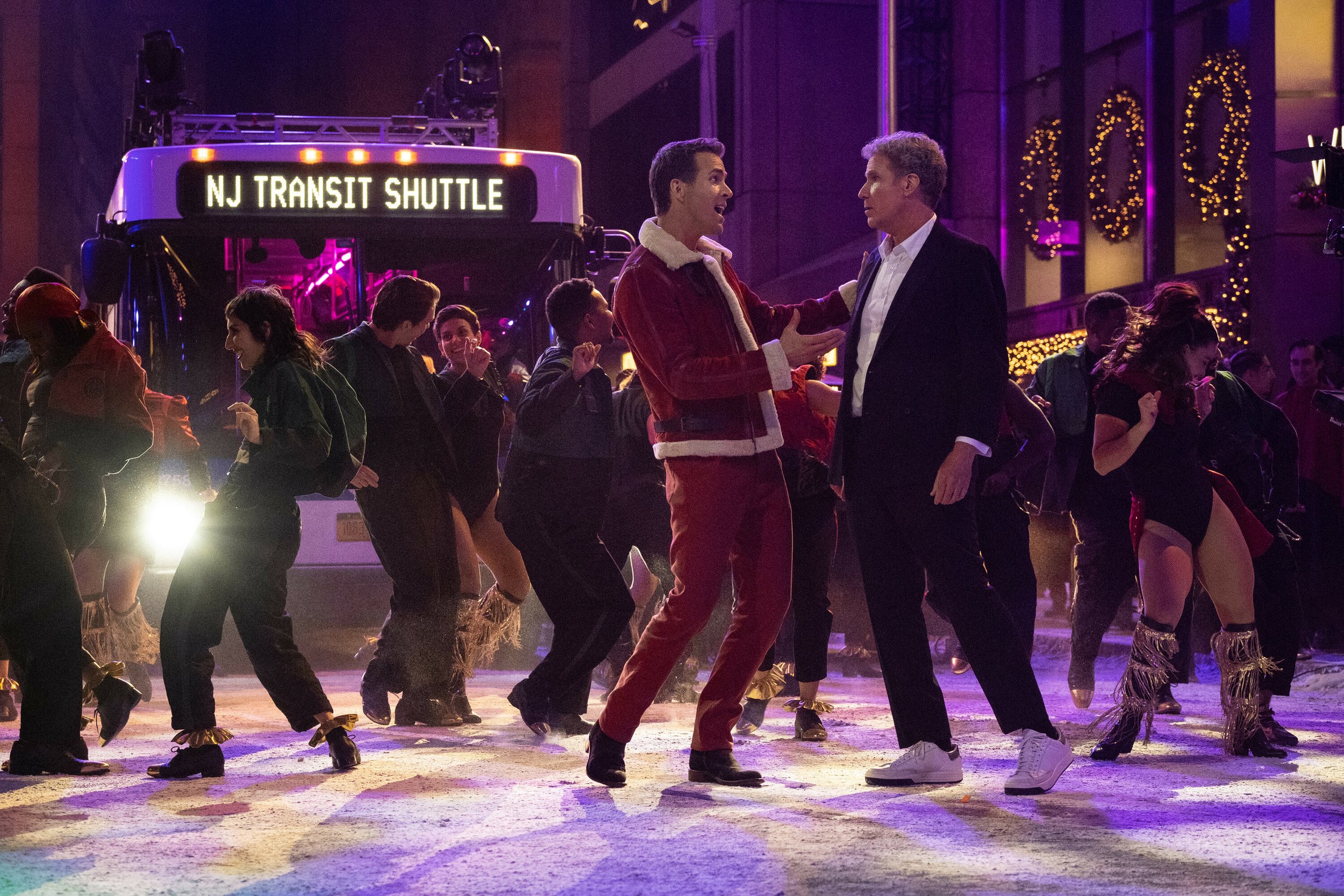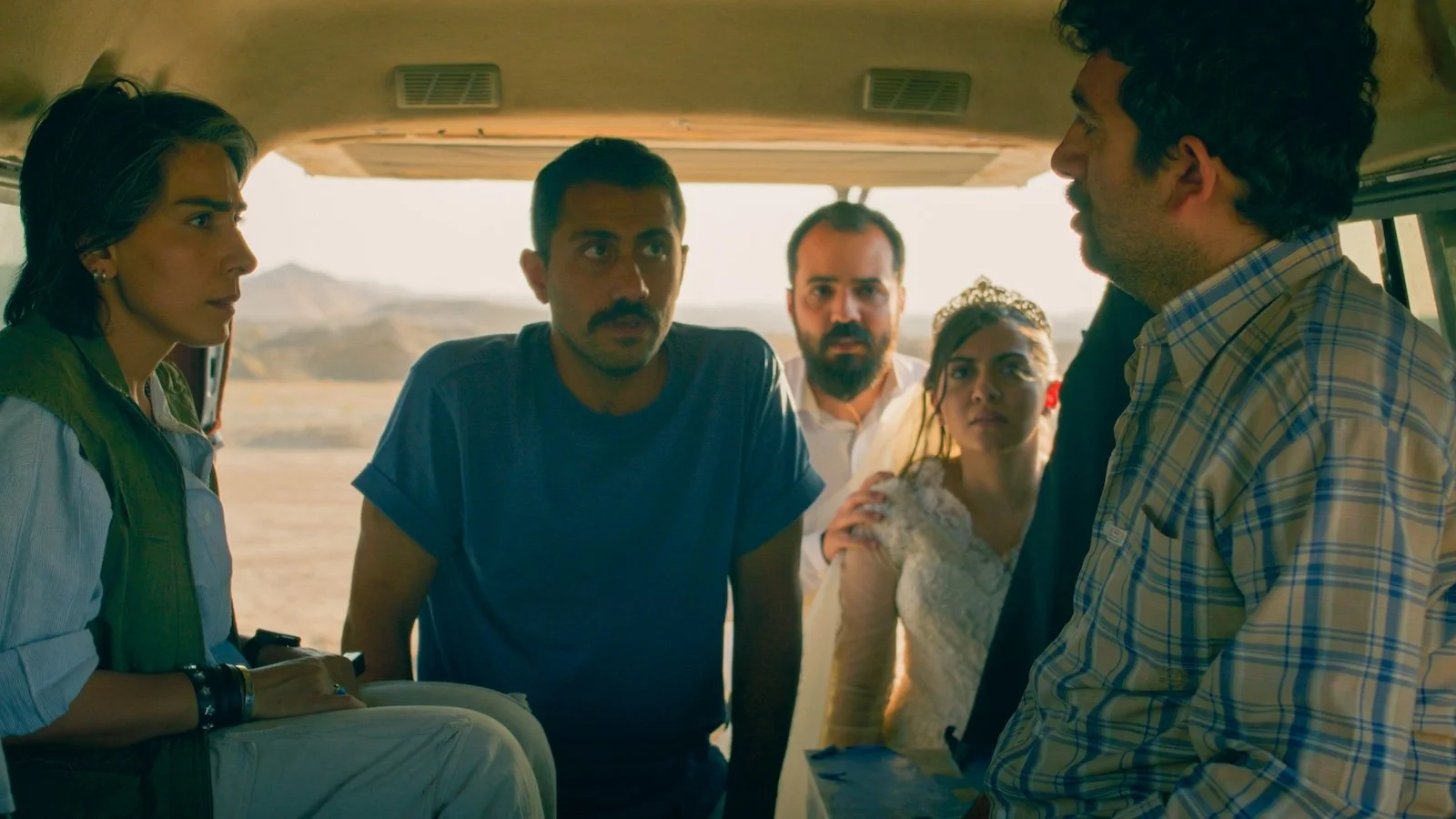Christmas: Spirited (2022)
What exactly is Sean Anders’ Spirited? The simplest answer is that it’s “content,” that amorphous, nefarious catchall phrase that describes everything from Instagram posts to movies to articles to podcasts in our modern digital economy. Such a description might be vague, but it sums up the creative vision behind Spirited.
Anders’ film is a calculated piece of holiday content, crafted in such a way as to appeal to as broad an audience as possible and deliver as many qualities of a “Christmas movie” as the filmmakers think necessary to make it a hit. It stars two appealing actors who have both made Christmas movies before: Will Ferrell and Ryan Reynolds. It features original songs and dance sequences, all done by the people behind the bafflingly popular The Greatest Showman. It’s a comedy, but with some of the superficial soul-searching that is necessary in the holiday genre.
As well, its plot is a convoluted riff on A Christmas Carol, with Ferrell playing the ghost of the real Ebenezer Scrooge, who has become a kind of semi-deity, The Ghost of Christmas Present, existing in a vague version of the afterlife and haunting one person in need of redemption each year. He does this with the help of the ghosts of Jacob Marley (Patrick Page), Christmas Past (Sunita Mani), and Christmas Yet to Come (Loren G. Woods, with Tracy Morgan as the voice). This makes Scrooge’s own experience from the original Dickens story an annual tradition.
The film’s use of the structure of A Christmas Carol in such a metatextual manner could have been brilliant, in essence commenting on how it has been the basis for the English-speaking world’s understanding of Christmas stories and their possibilities for character redemption for nearly 200 years. But such an approach seems more accidental in Spirited than anything. The use of A Christmas Carol is to play into familiarity—everyone is aware of the story—as well as predictability—Dickens’ tale has been the template for essentially every Christmas story told since its release in 1843. Spirited doesn’t want to surprise anyone, while also making clear that it’s a movie about redemption, so the easiest manner to do this is to rely on A Christmas Carol for structure and thematic purpose.
In the plot, the immortal spirit of Scrooge chooses Reynolds’ callous media consultant Clint Briggs as this year’s target for haunting and potential redemption. However, Briggs, who’s too clever for Scrooge, flips the whole scenario around on him, probing into his insecurities and unfilled desires rather than succumbing to Scrooge’s redemptive reflections. Of course, the whole conceit is that as Clint makes Scrooge reconsider what he wants in his (after)life, Clint himself becomes open to the possibility of change, and, thus, his own redemption. There’s no real mystery about where the film is headed—the certainty of positive reinforcement is a large part of why people watch Christmas movies. But the directions it takes scene-to-scene and even moment-to-moment are certainly surprising.
Characters will burst into song and dance at the drop of a hat. There are detours into lame commentary on our current age of disinformation that’ll morph into sentimental hokum, the likes of which you get on the Hallmark Channel. There’s also an amusing detour to the early 19th century that features the film’s standout song, “Good Afternoon,” which relies on the humorous notion that the rudest thing you could say to a person in 1843 was “good afternoon.” Nothing in Spirited is too unpleasant, but nothing is memorable or meaningful. Oh, and the entire film is set in a baffling version of the afterlife that operates according to inexplicable, yet seemingly-bendable, rules.
Like in so many Hollywood movies, the film’s entire conception of the afterlife is as vague as can be, so as to appear inoffensive to as wide an audience as possible. Mostly, the afterlife is envisioned as a giant office decked out in holiday trimmings, where Scrooge and the other ghosts work and prepare for the yearly Christmas haunt. But there are also references to lives outside this eternal officespace and food and day jobs and the existence of time, as if these spirits only work in the immortal office from nine to five.
There’s also the possibility of returning to earth and living again as a human in a new body, which becomes a key part of the narrative. The on-screen world allows for endless activity—Spirited is nothing if not hyperactive—but it has no cohesion or internal logic. The filmmakers’ “World of Story” in the project bible must have been a page with endless scribblings and notes written in the margins, crowding every corner of the page until nothing can be deciphered.
Of course, no one watches a movie like Spirited for coherence or clarity. They watch for jokes and to pass the time during the holidays, to watch Will Ferrell and Ryan Reynolds tap dance and sing and tell jokes. They watch to feel vaguely good at the end of its absurdly-inflated 127-minute runtime. The movie fails as a movie, but succeeds as content. Even—or perhaps especially—at Christmastime, we seek validation from the content machine and a reminder that things are A-OK and everyone is doing their best.
5 out of 10
Spirited (2022, USA)
Directed by Sean Anders; written by Sean Anders and John Morris, based on A Christmas Carol by Charles Dickens; starring Will Ferrell, Ryan Reynolds, Octavia Spencer, Sunita Mani, Patrick Page, Marlow Barkley, Tracy Morgan.



Nia DaCosta’s sequel to 28 Years Later pits two competing theologies of death against each other.